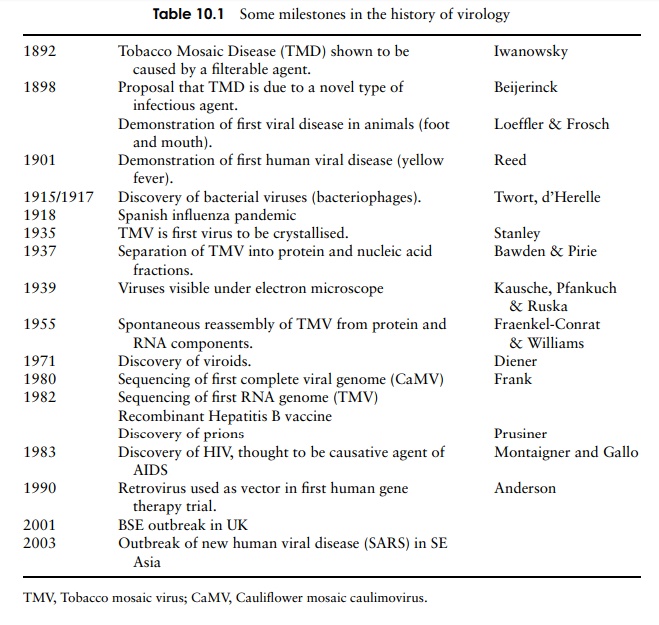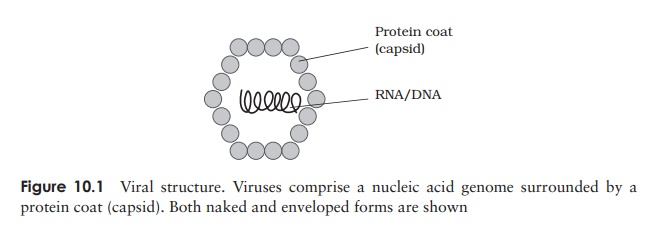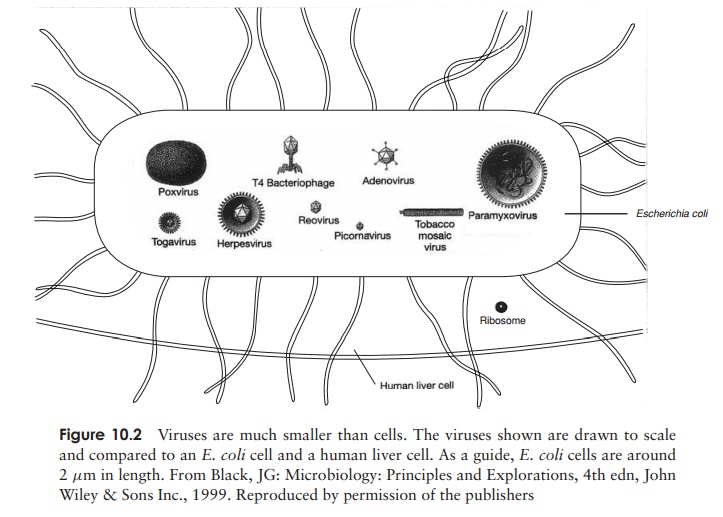Chapter: Essential Microbiology: Viruses
What are viruses?
What are viruses?
All viruses are obligate intracellular parasites; they inhabit a
no-man’s-land between the living and the non-living worlds, and possess
characteristics of both. They are now known to differ radically from the
simplest true organisms, bacteria, in a number of respects:
·
they cannot be observed using a light microscope
·
they have no internal cellular structure they contain either DNA or
RNA, but not both*
·
they are incapable of replication unless occupying an appropriate
living host cell
·
they are incapable of metabolism
·
individuals show no increase in size.
When inside a host cell, viruses show some of the features of a
living organism, such as the ability to replicate themselves, but outside the
cell they are just inert chemical

structures, thus fuelling the debate as to whether they can be considered to be life forms. A particular virus has a limited host range, that is, it is only able to infect certain cell types. Nobody is sure how viruses evolved;


Related Topics